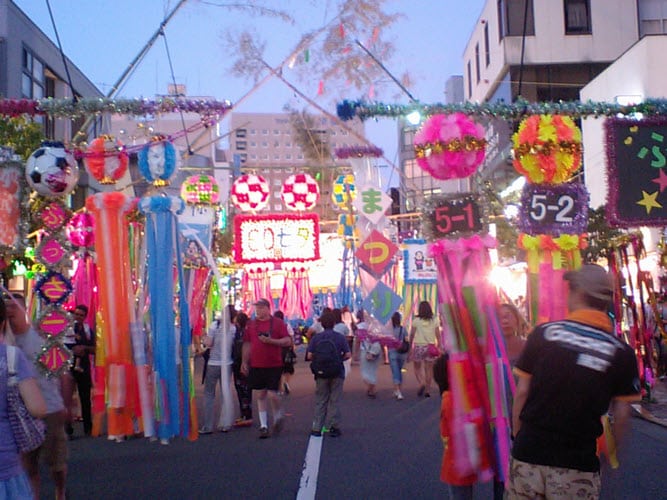Tanabata: History, Theme, and Significance

Tanabata, also known as the Star Festival, is a traditional Japanese festival celebrated on the seventh day of the seventh lunar month. The festival originated from the Chinese Qixi Festival and has been celebrated in Japan for centuries. Tanabata is centered around the mythological love story of Orihime, the weaver princess, and Hikoboshi, the cowherd.
This four-day festival runs from Ueno to Asakusa. It is to celebrate the meeting of two deities: Orihime and Hikoboshi, star-crossed lovers who are only allowed to meet once a year. Held around July 7, the festival features dancing, eating, and drinking at local stalls, and live entertainment that includes street performances as well as traditional acts like shamisen (a traditional Japanese instrument) and taiko (a Japanese percussion instrument) on Saturday. But the main attraction is the parade on Sunday topped with countless decorations.
History of Tanabata
The origins of Tanabata trace back to a Chinese legend about two star-crossed lovers, Zhinü (Orihime) and Niulang (Hikoboshi). They were separated by the Milky Way and were allowed to meet only once a year on the seventh day of the seventh lunar month. This legend made its way to Japan during the Heian period (794-1185), and Tanabata became a popular festival associated with love and romance.
Significance of Tanabata
Tanabata holds cultural and symbolic significance in Japan. The festival is often associated with prayers for good fortune, love, and personal wishes. It is believed that the deities of Orihime and Hikoboshi will grant the wishes written on tanzaku if the weather is clear on the night of the festival. Tanabata is also a celebration of the summer season and serves as a time for communities to come together and enjoy festivities.
Events at Tanabata
During Tanabata, various events and customs are observed. The most notable tradition is the writing of wishes on strips of paper called tanzaku, which are then hung on bamboo branches. Colorful decorations, called kazari, are also hung on bamboo, symbolizing the stars and the deities’ meeting. Additionally, communities hold parades, processions, and cultural performances, such as traditional dances and music.
Observer Voice is the one stop site for National, International news, Sports, Editor’s Choice, Art/culture contents, Quotes and much more. We also cover historical contents. Historical contents includes World History, Indian History, and what happened today. The website also covers Entertainment across the India and World.
Follow Us on Twitter, Instagram, Facebook, & LinkedIn

